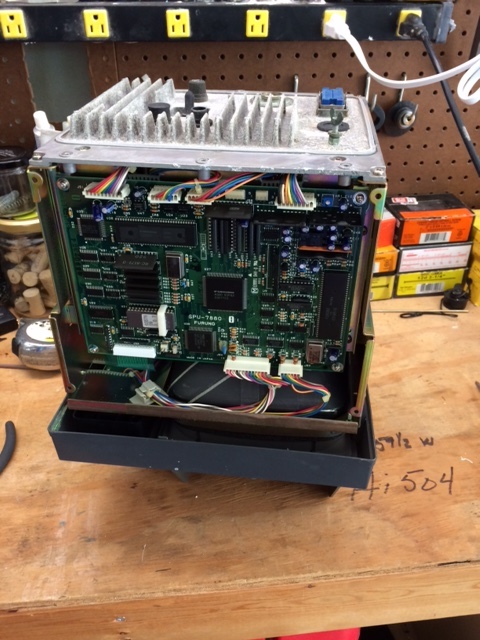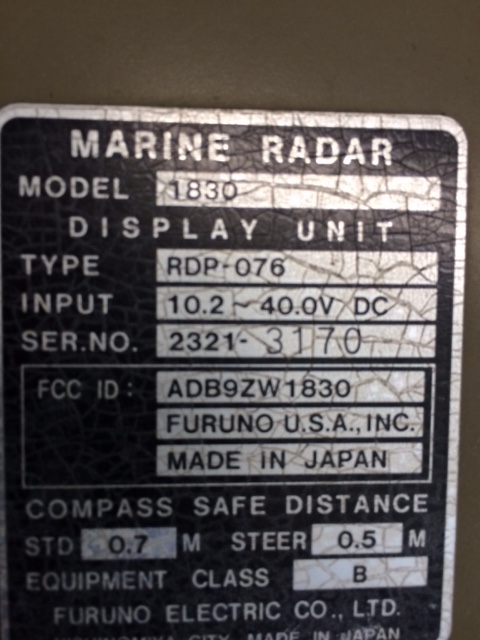MakinMemories
Veteran Member
- Joined
- Apr 22, 2016
- Messages
- 85
- Location
- US
- Vessel Name
- Makin Memories
- Vessel Make
- 1987 41' President

My Furuno 1830 radar started to work intermittently on our cruise to Key West from Tarpon Springs this summer. My wife and I found that the radar is truly a very helpful friend in navigating the GICW during the many rain storms we encountered. But the failing radar was not only unsafe but downright dangerous. In the past, I would have gone out and bought a new one - a smaller foot print, color, dependable. I knew deep down though that I had to try and repair the unit myself, hence opening the box up and delving into the mysteries of the black box.
I began with the basics. Stay in familiar territory and don't touch anything that could break easily, such as, capacitors, resistors, wires drop soldered. God forbid I confuse the colored wires and where they plug in. I felt paralyzed because nothing was familiar. But, with persistence, I carefully sanded connections, reconnected loose wires, and cleaned up the insides. To my amazement, the unit turned on and continued to operate without shutting down. Of course, there was no rain in sight, and we were not in danger of running aground, but the radar did function consistently for the test period.*

Moral of the story, give DIY a try, the worst that can happen is that you go out and purchase a new whatever. The best that can happen is that you gain a new found confidence in yourself and you save a few bucks.


